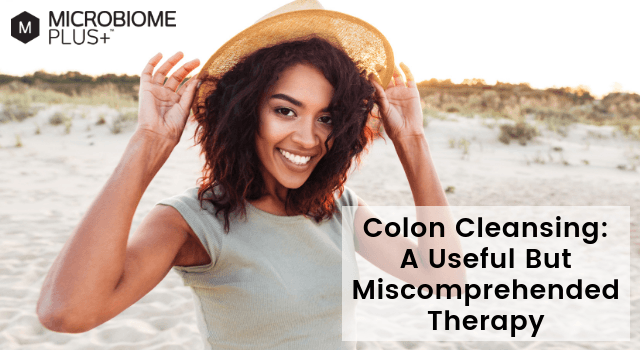Topic Overview
Gut health is crucial for your overall well-being. Colon cleansing, medically also referred to as colonic irrigation, is believed to rid your colon (large intestine) from toxins that can make you sick. While the therapy does hold significant clinical value, the reasoning that’s used to promote colon cleansing largely lacks scientific accuracy. This has created a lot of conflict between traditional healers and Modern-Medicine practitioners. In 2006, Dr. S. Horne, an American Herbalist, explicated as to how the scientifically inaccurate mechanisms employed to explain the benefits of colon cleansing have led to a serious discord between the two groups of practitioners. [1]
Autointoxication
Ancient physicians, in particular, the French physician Charles Bouchard’s —noted that disease-causing toxins arise from the “glued, rotten” stool — a process they referred to as “intestinal autointoxication.”[2] According to these practitioners, the long-standing fecal matter could become crusted and then acted upon by the residential bacteria. The end products of this fermentation process were found to be toxic and capable of breaching the colonic walls and accessing a person’s bloodstream, leading to a variety of diseases.
In other words, autointoxication was regarded as the process whereby the body poisoned itself by creating a sewer of decaying matter in the colon. Dr. Bouchard explicitly declared:
“The constipated person is always working toward his own destruction; he makes continual attempts at suicide by intoxication.” [3] “Every moment of his life he runs the risk of being overpowered by poison generated within his system.” [4]
The theory of autointoxication resonated quite well for people who were often sick but unable to be diagnosed with a clear organic disease that could justify their symptoms. Disorders of unknown origin such as headache, indigestion, nervousness, insomnia were specifically placed in this class. Likewise, mental disturbances also gained a lot of interest in this respect.
Constipation and the increased risk of colorectal cancer
As the evidence—based medicine continued to evolve, the notion of autointoxication was debunked. In fact, two American physicians suggested that symptoms (like loss of appetite, mental slowness, headaches, and depression) supposed to be caused by autointoxication –– were caused by constipation itself rather than chemical forces such as the absorption of toxins. [4]
More recent medical studies show that a healthy digestive tract is inherently capable of cleansing your colon from time to time. [2] But then there are factors like the current Western diet and its adverse effects, primarily constipation. [5] The low-fiber diet largely precedes chronic constipation, which in turn, is tied to the high risk of colorectal cancer. [6] Experts suggest that the slow bowel movements prolong the timing of contact between the lining of the colon and concentrated cancer-causing agents (such as bile acids or other cancerous agents) in the lumen of the colon. When that happens, the odds of developing colon cancer rise. Such risks seem to hint at the importance of a colon cleanse in people who remain chronically sick.
Conclusion
Throughout the course of medical/alternative health history, there have been proponents as well as opponents of the autointoxication premise. A majority of medical professionals at present do not seem to support the idea of using colon cleansing as a therapeutic modality. Nonetheless, there is also some evidence to revisit the theory of “body detoxification” by colon cleansing. [7]
At last, the data supporting colonic cleansing and body “detoxification” is still limited. However, given the benefits claimed by natural practitioners, further exploration into this therapy is warranted.
Read next:
References
- Horne, S. Colon Cleansing: A Popular, but Misunderstood Natural Therapy. Journal of Herbal Pharmacotherapy, 2006; 6(2): 93-99.
- Whorton J. Civilisation and the colon: constipation as the “disease of diseases”. BMJ. 2000;321(7276):1586–1589. doi:10.1136/bmj.321.7276.1586
- Bouchard C. Lectures on auto-intoxication in disease or self-poisoning of the individual. Philadelphia: Davis; 1906. p. 15.
- Bested AC, Logan AC, Selhub EM. Intestinal microbiota, probiotics and mental health: from Metchnikoff to modern advances: Part I – autointoxication revisited. Gut Pathog. 2013;5(1):5. Published 2013 Mar 18. doi:10.1186/1757-4749-5-5.
- Mehta RS, Song M, Nishihara R, et al. Dietary Patterns and Risk of Colorectal Cancer: Analysis by Tumor Location and Molecular Subtypes. Gastroenterology. 2017;152(8):1944–1953.e1. doi:10.1053/j.gastro.2017.02.015.
- American College of Gastroenterology (ACG). (2012, October 22). Chronic constipation linked to increased risk of colorectal cancer. ScienceDaily. Retrieved June 9, 2019 from www.sciencedaily.com/releases/2012/10/121022081228.htm.
- Hsu HH, Leung WH, Hu GC. Treatment of irritable bowel syndrome with a novel colonic irrigation system: a pilot study. Tech Coloproctol. 2016;20(8):551–557. doi:10.1007/s10151-016-1491-x.







